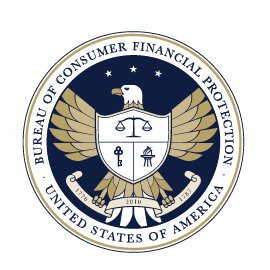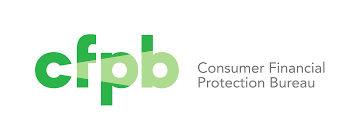The Florida Supreme Court recently resolved a conflict among the state appellate courts. At issue in the case was whether section 702.06, Florida Statutes (2014) permitted lenders to pursue a deficiency claim as a separate action at law even though the foreclosure court had reserved jurisdiction in its final judgment to adjudicate the deficiency claim. The First District Court of Appeal had ruled that a lender could not pursue the deficiency as a separate action at law, which was in conflict with decisions from the Second, Third, Fourth and Fifth District Courts of Appeal. The Florida Supreme Court resolved the…
A panel of the U.S. Court of Appeals for the Ninth Circuit recently held that a law firm’s effort to collect homeowner association (“HOA”) assessments through judicial foreclosure constitutes debt collection under the federal Fair Debt Collection Practices Act. In so ruling, for purposes of whether activity constitutes debt collection under the FDCPA, the Court distinguished judicial foreclosures that allow for deficiency judgments from non-judicial foreclosures that do not allow for deficiency judgments. A copy of the opinion in McNair v. Maxwell & Morgan, PC is available at: Link to Opinion. The plaintiff consumer purchased the subject property in Arizona subject…
In a 5-4 ruling, the Supreme Court of the United States held that anti-steering provisions in agreements between a credit card company and merchants wishing to accept the card do not violate federal antitrust law. A copy of the opinion in Ohio v. American Express Co. is available at: Link to Opinion. The defendant credit card company required merchants who wanted to accept the company’s credit cards to agree to an anti-steering contractual provision. Under the company’s business model, and unlike other credit card companies, it earned most of its revenues not from collecting interest from cardholders but from merchant…
On June 28, the U.S. Supreme Court granted a Petition for a Writ of Certiorari in Obduskey v. McCarthy & Holthus LLP that presents the question “whether the FDCPA applies to non-judicial foreclosure proceedings.” The borrower in the underlying case defaulted on his home loan and the mortgage servicer hired a law firm to pursue a non-judicial foreclosure. The borrower informed the law firm he was disputing the debt and the law firm, without responding to the dispute, proceeded with the non-judicial foreclosure. The borrower then filed a lawsuit against the mortgage servicer and law firm alleging, among other things,…
On June 28, California passed into law the California Consumer Privacy Act of 2018, which becomes operative on Jan. 1, 2020. As with the EU’s General Data Protection Regulation, the Privacy Act gives consumers greater control over the use and sharing of their personal information. The Privacy Act allows a consumer to request that a business disclose: the categories and specific pieces of personal information that it collects about the consumer; the categories of sources from which that information is collected; the business purposes for collecting or selling the information; the categories of third parties with which the information is…
Following the D.C. Circuit’s ruling in ACA Int’l v. FCC, the U.S. Court of Appeals for the Third Circuit recently held that an “automatic telephone dialing system” under the federal Telephone Consumer Protection Act must have the present or current capacity to store or produce telephone numbers using a random or sequential number generator, and to dial those numbers. A copy of the opinion in Bill Dominguez v. Yahoo, Inc. is available at: Link to Opinion. The plaintiff purchased a cellphone with a reassigned telephone number. The prior owner of the number subscribed to an email service provider’s “Email SMS Service,”…
The U.S. Court of Appeals for the Third Circuit recently reversed the dismissal of a consumer’s complaint for unauthorized use of his credit card, holding that he stated claims for relief under the federal Fair Credit Billing Act’s correction of billing errors provisions, and the federal Truth in Lending Act’s unauthorized-use provisions. In so ruling, the Court held that: When “a creditor removes a disputed charge from a billing statement and later reinstates that charge, the 60-day period in which a consumer must file a written dispute begins when the consumer receives the first statement reinstating the charge.” “A cardholder…
In a follow-up to an advisory jury’s verdict, finding that a law firm’s pre-suit collection letters contained “false, deceptive, or misleading representations or means in connection with the collection of a debt” while rejecting a claim that the firm’s attorneys were not meaningfully involved in the debt collection process in violation of the FDCPA, the CFPB filed its proposed findings of fact and conclusions of law on June 15, suggesting that the jury’s verdict was misguided. Instead, the CFPB asserted that the applicable facts and law support a conclusion that attorneys with the law firm were in fact not “meaningfully…
Mass. SJC Holds Mass. Debt Collection Regs Apply to Creditors that Auto Dial or Don’t Leave Messages

The Massachusetts Supreme Judicial Court (SJC) recently held that Massachusetts debt collection regulations, which limit how often a creditor may attempt to contact a debtor via telephone in order to collect a debt, apply to creditors that use automatic dialing devices or voluntarily decide not to leave voicemail messages. A copy of the decision in Armata v. Target Corporation is available at: Link to Opinion. The plaintiff initiated a matter in Superior Court, alleging the defendant violated 940 Code Mass. Regs. § 7.04(1)(f), which provides that “[it] shall constitute an unfair or deceptive act or practice for a creditor to contact…
In a recently issued unpublished opinion, the U.S. Court of Appeals for the Fifth Circuit rejected the argument of the attorney defendant who owned a law firm and a debt-buying company that he was exempt under the federal Fair Debt Collection Practices Act (FDCPA) because he was a creditor “by proxy.” Specifically, the Fifth Circuit determined that the attorney, his law firm, and his debt-buying company were all distinct entities as a matter of law, such that his argument that he, as the owner of the debt-buying company, owned the debt and thus he did not qualify as a debt…
In the final few pages of a 108 page opinion of a motion to dismiss a complaint jointly filed by the Consumer Financial Protection Bureau (CFPB) and the Attorney General of the State of New York (NYAG), a Federal Judge sitting in the Southern District of New York declined to follow an earlier ruling from the Court of Appeals for the District of Columbia Circuit but instead adopted the dissent which held that “the CFPB is unconstitutionally structured because it is an independent agency that exercises substantial executive power and is headed by a single Director.” A copy of the…
The U.S. Court of Appeals for the Ninth Circuit recently held that a plaintiff did not allege Article III standing for her claim under the federal Fair Credit Reporting Act (FCRA) where there were no specific factual allegations plausibly tying the inclusion of her debit card expiration date on her receipt to her alleged identity theft. Moreover, the Court held, leave to amend would be futile because this action against the National Park Service was barred by sovereign immunity. Accordingly, the Ninth Circuit affirmed the ruling of the district court dismissing the complaint. A copy of the opinion in Daniel…











